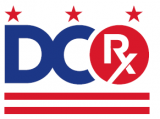Weighing In: Evidence-Based Strategies for Long-Term Obesity Management

This 60-minute session led by obesity experts is designed to improve your understanding of obesity as a serious chronic disease, increase your comfort in incorporating long-term obesity management into routine practice, and hone your skills in discussing obesity, weight-loss goals, and individual
Category
- Weight Management
Format
- Self-study / Enduring
Credits
- 1.00 AANP Contact Hours
- 0.33 AANP Pharmacology Contact Hours
- 1.00 AMA PRA Category 1 Credit™
What Makes Obesity So Difficult to Treat?

This session examines the physiological factors that contribute to obesity and uncovers the intricacies to help you create more impactful weight-loss plans.
Category
- Weight Management
Format
- Self-study / Enduring
Credits
- 0.25 AANP Contact Hours
- 0.25 AMA PRA Category 1 Credit™
What Role Does the Primary Care Team Have in Adolescent Depression Recognition and Management?

A new review highlights what clinicians need to know to diagnose and treat depression effectively among adolescents.The goal of this activity is for members of the healthcare team to be better able to diagnose and treat depression among adolescents.
Category
- Depression
Format
- Self-study / Enduring
Credits
- 0.25 AAPA Category I CME
- 0.25 AMA PRA Category 1 Credit™
- 0.25 ANCC
Acute Ischemic Stroke Evaluation and Management

Each lesson in the Disease Management Clinical Decisions series provides a brief, case-based review of management strategies related to the topic. Questions and multiple-choice answers about the case presented include the rationale for the correct answer.
Category
Format
- Self-study / Enduring
Credits
- 1.00 AMA PRA Category 1 Credit™
Weight Management for Transgender Patients

Each lesson in the Disease Management Clinical Decisions series provides a brief, case-based review of management strategies related to the topic. Questions and multiple-choice answers about the case presented include the rationale for the correct answer.
Category
- LGBTQ
- Weight Management
Format
- Self-study / Enduring
Credits
- 1.00 AMA PRA Category 1 Credit™
- 1.00 ANCC
Embracing the Journey: End-of-Life Care Planning and Palliative Care

Our population is aging and so are our patients. Learn how to address advance care planning issues such as long term care planning, pain management, and end of life documentation that are necessary in caring for your older patients. Dr.
Category
- Pharmacology
- Palliative Care
- End of Life Care
Format
- Self-study / Enduring
Credits
- 1.00 AANP Contact Hours
- 0.25 AANP Pharmacology Contact Hours
- 1.00 AMA PRA Category 1 Credit™
Implicit Bias

This module provides an overview of implicit bias, and how it is manifested in everyday clinical decision-making. Viewers will learn about the underlying psychology and neuroscience of implicit associations, and assess their own biases to increase self-awareness.
Category
- Implicit Bias
Format
- Self-study / Enduring
Credits
- 1.50 AMA PRA Category 1 Credit™
Cultural Competency: Providing Meaningful Care to a Diverse Patient Population

We all possess innate biases that may cause us to treat patients differently without us even being aware of it. At the end of this course, you should be able to take a second look at instances in your patient interactions that might cause misunderstandings.
Category
- Cultural Competency
Format
- Self-study / Enduring
Credits
- 0.50 AMA PRA Category 1 Credit™
Understanding Dementia: Characterization, Diagnosis, and Patient Care

As people live longer, the burden of dementia will increase for families, society, and the healthcare system. This session will enable you to help your patients by teaching you how to classify, diagnose, and treat all forms of dementia.
Category
- Cognitive Impairment
Format
- Self-study / Enduring
Credits
- 1.00 AANP Contact Hours
- 0.25 AANP Pharmacology Contact Hours
- 1.00 AMA PRA Category 1 Credit™
A Physician’s Practical Guide to Culturally Competent Care

As healthcare disparities among cultural minority groups persist in our country, culturally and linguistically appropriate services (CLAS) are increasingly recognized as an important strategy for improving quality of care to diverse populations.
Category
- Cultural Competency
Format
- Self-study / Enduring
Credits
- 9.00 AANP Contact Hours
- 9.00 AAPA Category I CME
- 9.00 AMA PRA Category 1 Credit™

 Facebook
Facebook Twitter
Twitter LinkedIn
LinkedIn Forward
Forward